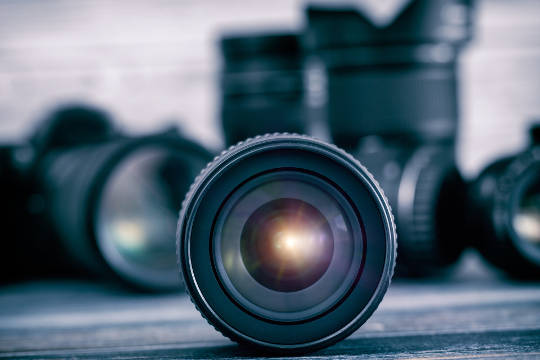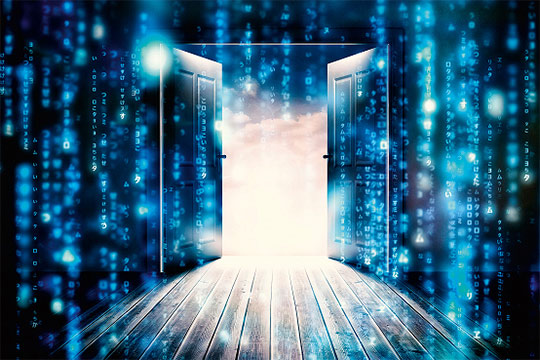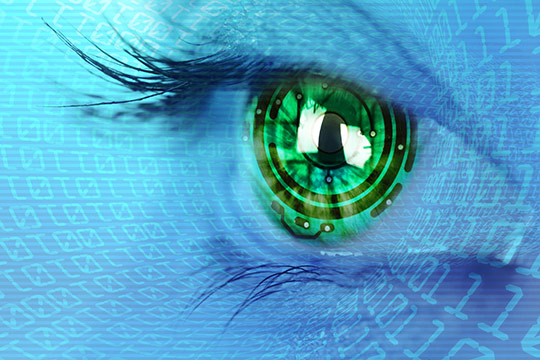TECHNOLOGY FOCUS
New developments in CMOS Semiconductor Technology, next to the outstanding imaging performance of solid-state imagers, open up new applications.
Automotive camera systems, improving image quality, and post-capture image processing techniques for digital video signals are important areas where extensive development progress is being made. It is just a matter of time before we will detect single photons with solid-state image sensors, enabling photon counting applications which enable quality images in extremely low light conditions.
In the medical world, new surgery techniques become possible thanks to the powerful characteristics of the image sensors. Also in the mobile world, the image
sensor technology went to a revolution over the last two decades. For instance, in a today’s smart phone, there are more mm2 of imaging silicon than in a
professional broadcast camera.


COURSE CONTENT
The major objective of this course is to make the participants familiar withSolid-State Imaging and the relevant related topics.
It will give an in-depth view of the possibilities and limitations of the image capturing technology of today and tomorrow.
Participants will receive a comprehensive set of course notes. These notes are for participants only and are not for sale.
WHO SHOULD ATTEND
The course is aimed at engineers, scientists and managers with basic knowledge, either theoretical or hands-on, in engineering or physics.
No detailed knowledge of device physics is assumed.
The course is developed to give an in-depth understanding of image capturing to engineers and technicians who are active in the field, and to give those with a theoretical knowledge the opportunity to learn more about the practical issues of the subject.
Much of the course will be of interest also to camera designers through its practical approach.
The course will provide managers and research workers having related experience in industrial, governmental or academic institutions with a valuable update on the latest developments in this fast-moving imaging topics.
More experienced engineers should instead choose our course No. 020 Advanced Course on Imaging Sensor Technology.

Day 1
During the first day of the course, we will focus on the overall image sensor architecture and the various pixels used in CMOS image sensors. Pixels with 1 transistor, 3 transistors and eventually 4 transistors will be explained. The pixel discussion will be concluded with the shared pixel concept.
Without any further introduction it should be clear that light sensitivity is an important characteristic of the devices. In the course, the light sensitivity of the sensors will be explained, and (new) technologies will be introduced on how to further increase the light sensitivity.
Day 2
The second day of the class will be a very “noisy” day. The full day will be devoted to noise. Special attention will be paid to temporal noise sources and to fixed-pattern or spatial noise sources. Once the various noise issues are understood, the focus will shift to how to mitigate (most of) the noise generated by all the various sources.
The second day will conclude with the perception of noise in images by the human visual system and with an in-depth discussion about signal-to-noise ratio and how manipulation of images will change the signal-to-noise ratio.
Day 3
Once the basics of the image sensors are clear, as well as sensitivity and noise is explained, the time will come to characterize all those parameters. Characterization of the following parameters will be discussed: temporal noise (total, column, row, pixel), fixed-pattern noise (total, column, row, pixel), dark current, light sensitivity, quantum efficiency, photo-response non-uniformity, image lag.
A very special performance characteristic of an image sensor is the modulation transfer function (MTF). Why is MTF important, and how is it measured?
Day 4
The last day of the class will be devoted to special architectures that are used to improve the characteristics of the devices. Examples of these architectures are colour image sensors, devices for wide dynamic range, imagers with global shutter pixels, time-of-flight devices, phase-detection auto-focus pixels, …
The training will be concluded with a quick look at datasheets. What is specified in a data sheet and what is not specified? What are the traps that are present in a data sheet?
Said about the course from previous participants:
"The course had a good balance between enough technical deepness and a wide range of subjects and hands-on exercises."
"Wide coverage of the topic and relation to practical work."
"Very interesting course, very motivated and enthusiastic teacher, fully satisfied!"
"Very practical and lively explanations."
"Many examples from real life."

